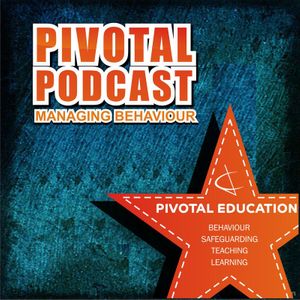Subject Teachers – Try Kamil’s EAL Tips and Tricks in your classroom! PP225
Pivotal Podcast - A podcast by Pivotal Education

Categories:
Kamil Trzebiatowski Tara Elie talks to EAL teacher, consultant and resources creator, Kamil Trzebiatow who shares his extensive experience and expertise supporting students with English as an Additional Language in mainstream subject classes. He gives us many practical approaches to try out. Kamil’s blog has been created specifically to help subject teachers who have not had specific EAL training to help any learners in their classes who have EAL needs. So you’ll find lots of useful resources there including videos and practical help. Kamil stresses the importance of understanding that learners with EAL needs in English schools have to learn the language at the same time as learning the individual subjects of the curriculum and a lot of his time is spent helping teachers manage this. “You have to make sure they make progress in academic learning but also at the same time remove the barriers in the English language.” Typical questions and anxieties amongst teachers about EAL * Students ability to access the material presented in English* The work is too difficult for the students because of the language barrier – so there is a potential compromise in high expectations* Unlike, for example, Dyslexia, EAL is seen as an insurmountable barrier* What language do I teach them in?* I don’t know any EAL strategies and I was never trained for this* Advice on how to differentiate in the classroom for EAL learners (links to Kamil’s blog) * Substitution tables* Graphic organisers* Use the learner’s first language to teach* Barrier games* Top tips on reaching EAL learners * Don’t confuse the English language with English literature – focus o grammar to enable learners to access the curriculum* Don’t wait for your school to train you – try some of these:* EAL Nexus* Collaborative Learning* NALDIC* English Learners, Academic Literacy, and Thinking: Learning in the Challenge Zone* Learning to Read in a New Language: Making Sense of Words and Worlds*